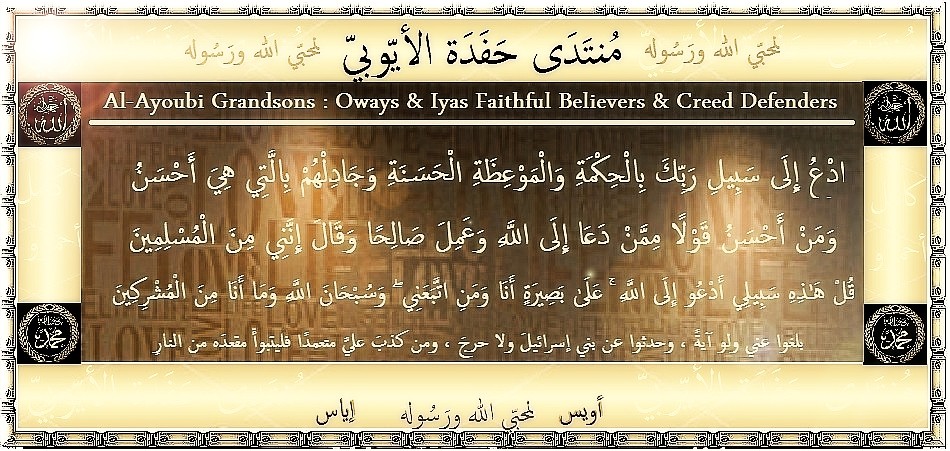Q. What are the requirements for Muslim women's dress?
A: Rules regarding Muslim women's (and men's) attire are derived from
the Quran, Islam's revealed text, and the traditions (hadith) of the
Prophet Muhammad (peace be upon him). In the Quran, God states: «"Say to the believing men that they should lower their gaze and guard their modesty...And say to the believing women that they should lower their gaze and guard their modesty; that they should not display their beauty and adornments except what (must ordinarily) appear thereof; that they should draw their veils over their bosoms and not display their beauty except to their husbands, their father ..."»
[Chapter 24, verses 30-31]
Also, «"O Prophet! Tell thy wives and daughters, and the believing women, that they should cast their outer garments over their persons...that they should be known and not molested."»
[Chapter 33, verse 59]
In one tradition, “the Prophet Muhammad is quoted as saying: "...If the woman reaches the age of puberty, no part of her body should be seen but this - and he pointed to his face and hands." ”
From these and other references, the vast majority of Muslim scholars
and jurists, past and present, have determined the minimum requirements
for Muslim women's dress:
1) Clothing must cover the entire body, with
the exception of the face and the hands.
2) The attire should not be
form fitting, sheer or so eye-catching as to attract undue attention or
reveal the shape of the body.
There are similar, yet less obvious requirements for a Muslim male's
attire.
1) A Muslim man must always be covered from the navel to the
knees.
2) A Muslim man should similarly not wear tight, sheer,
revealing, or eye-catching clothing. In addition, a Muslim man is
prohibited from wearing silk clothing (except for medical reasons) or
gold jewelry. A Muslim woman may wear silk or gold.
References: "The Muslim Woman's Dress," Dr. Jamal Badawi, Ta-Ha Publishers; "Hijab in Islam," Maulana Wahiduddin Khan, Al-Risala Books;
"The Islamic Ruling Regarding Women's Dress," Abu Bilal Mustafa
Al-Kanadi, Abul-Qasim Publishing; "Islamic Dress," Muslim Women of
Minnesota; "Your Hijab and U.S. Law," North American Council for Muslim Women
Q. Is Islamic dress appropriate for modern times?
A: Islamic dress is modern and practical. Muslim women wearing Islamic
dress work and study without any problems or constraints.
Q. Does Islamic dress imply that women are submissive or inferior to men?
A: Islamic dress is one of many rights granted to Islamic women. Modest
clothing is worn in obedience to God and has nothing to do with
submissiveness to men. Muslim men and women have similar rights and
obligations and both submit to God.
Q. But aren't there Muslim women who do not wear Islamic Dress,
or hijab?
A: Some Muslim women choose not to wear hijab. Some may want to wear it but believe they cannot get a job wearing a head scarf. Others may not
be aware of the requirement or are under the mistaken impression that
wearing hijab is an indication of inferior status.
Q. Why is Islamic dress becoming an issue for personnel managers and supervisors?
A: The Muslim community in American is growing rapidly. Growth factors
include conversions to Islam, immigration from Muslim countries and high
birth rates for Muslim families. As the community grows, more Muslim
women will enter the work force. In many cases, these women wish both to work and to maintain their religious convictions. It should be possible
to fulfill both goals.
Q. What issues do Muslim women face in the workplace?
A: Muslim women report that the issue of attire comes up most often in
the initial interview for a job. Some interviewers will ask if the
prospective employee plans to wear the scarf to work. Others may
inappropriately inquire about religious practices or beliefs. Sometimes
the prospective employee, feeling pressure to earn a living, will take
off the scarf for the interview and then put it on when hired for the
job. Modest dress should not be equated with incompetence.
Other issues include unwanted touching or pulling on scarves by other
employees, verbal harassment or subtle ostracism and denial of
promotion. Many Muslims also object to being pressured to attend
celebrations of other religious traditions or to attend
employer-sponsored celebrations at which alcohol is served.
Q. What can an employer reasonably require of a woman wearing hijab?
A: An employer can ask that an employee's attire not pose a danger to
that employee or to others. For example, a Muslim woman who wears her
head scarf so that loose ends are exposed should not be operating a
drill press or similar machinery. That employee could be asked to
arrange her hijab so that the loose ends are tucked in. An employer can
ask that the hijab be neat and clean and in a color that does not clash
with a company uniform.




